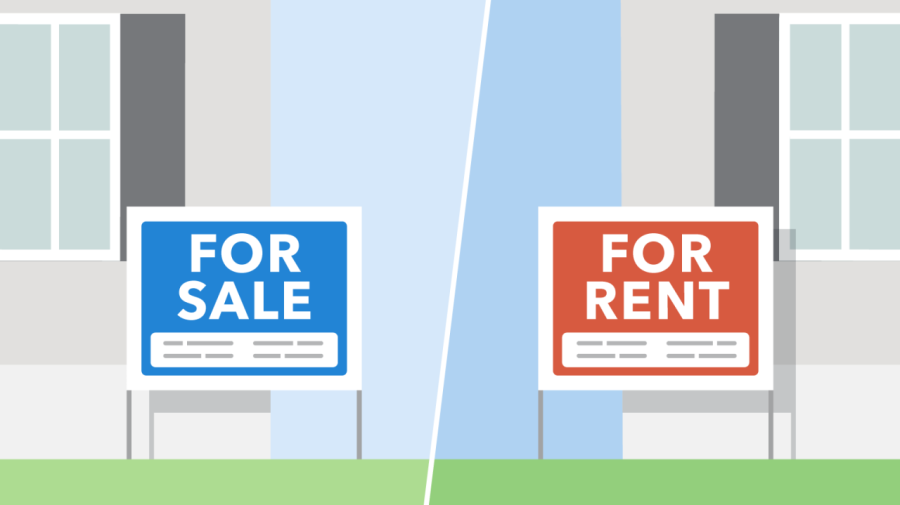Renting vs. Buying: Making the Right Choice

Deciding whether to rent or buy a home is a significant dilemma for many individuals. This choice can impact finances, lifestyle, and emotional well-being. With rising property prices and fluctuating market conditions, the question becomes even more complex. Should you invest in a home with a mortgage, or is renting a more practical option? This article explores the pros and cons of both renting and buying a property, focusing on financial implications, tax benefits, and personal preferences.
The Benefits of Renting
Renting a home offers several advantages that can appeal to many individuals. One of the most significant benefits is the financial flexibility it provides. Rent payments can often be lower than monthly mortgage payments, allowing renters to allocate funds to other expenses or savings. Additionally, renting typically requires less upfront capital compared to buying a home, which often involves hefty down payments and closing costs.
From a tax perspective, renting can also be advantageous. For those who receive a House Rent Allowance (HRA) as part of their salary, there are tax exemptions available. Renters can claim deductions based on the lowest of three criteria: the rent paid minus 10% of their salary, a percentage of their salary based on the city they live in, or the actual HRA received. This can significantly reduce taxable income, making renting a financially sound choice for many.
Moreover, renting offers flexibility in terms of location and lifestyle. Renters can easily relocate to different neighborhoods or cities without the burden of selling a property. This is particularly beneficial for young professionals or those whose jobs require frequent moves. However, renting does come with its drawbacks. Rent payments do not contribute to building equity, and rental prices often increase annually, leading to higher long-term costs. Additionally, renters may face restrictions on making changes to their living space and could be required to vacate with little notice.
The Case for Buying a Property
On the other hand, buying a home is often seen as a long-term investment. Homeownership allows individuals to build equity over time, as mortgage payments contribute to owning a tangible asset. This can be particularly appealing in markets where property values are expected to rise. Furthermore, homeowners can benefit from substantial tax deductions under the old tax regime. For instance, they can deduct interest payments on their home loans, which can amount to up to ₹2 lakh per annum for self-occupied properties.
When purchasing a home, buyers can also claim deductions on principal repayments, stamp duty, and registration fees under Section 80C, up to a limit of ₹1.5 lakh. This can significantly reduce the overall cost of homeownership. Additionally, if the property is rented out, homeowners can deduct not only the interest on their mortgage but also municipal taxes and a standard deduction of 30% from rental income.
However, buying a home is not without its challenges. The initial costs can be daunting, including down payments, closing costs, and ongoing property taxes. Real estate can also be illiquid, meaning it may take time to sell a property if financial circumstances change. Moreover, homeowners are responsible for maintenance and repairs, which can add to the overall cost of ownership. Regular mortgage payments must be made regardless of personal financial situations, which can be a burden during tough economic times.
Weighing the Emotional Factors
Beyond financial considerations, emotional factors play a crucial role in the decision to rent or buy. For many, a home represents stability and security. Owning a property can provide a sense of belonging and community. It allows individuals to personalize their space and create a home that reflects their identity. This emotional connection can be a compelling reason to invest in a property.
Conversely, renting can offer a sense of freedom. It allows individuals to explore different living environments without the long-term commitment of homeownership. This flexibility can be particularly appealing to younger individuals or those in transitional life stages. The ability to move easily can lead to new experiences and opportunities, which can be invaluable.
Ultimately, the decision to rent or buy should be based on individual circumstances, including financial stability, lifestyle preferences, and long-term goals. Each option has its advantages and disadvantages, and understanding these can help individuals make informed choices that align with their needs and aspirations. Whether you choose to rent or buy, it’s essential to consider both the practical and emotional aspects of your decision.
Observer Voice is the one stop site for National, International news, Sports, Editor’s Choice, Art/culture contents, Quotes and much more. We also cover historical contents. Historical contents includes World History, Indian History, and what happened today. The website also covers Entertainment across the India and World.

